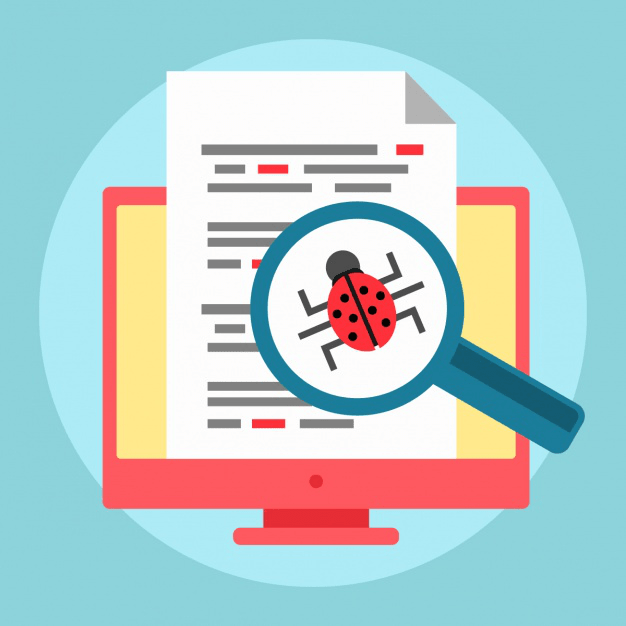Webpage virus links are detrimental; they have been made to institute malicious actions against a webpage or its users. Webpage virus links can adversely affect a webpage and its users in so many ways.
The reasons hackers will infect a website with malware include creating a dreaded online persona or simply for monetary gains. This then begs the question, which threats make you scan website for virus links?
Given the immense number of web services and applications available online, it's not shocking that the presence of these services and apps attracts cybercriminals who want to exploit the weak security measures for their personal gain.
There are various kinds of webpage virus links, each designed to execute lethal actions. It's vital to remove webpage virus links when they are initially identified to secure your site's status, decrease the level of risk to users, and ease up on SEO issues.
Most webpage malware contains features that allow hackers to maintain unlawful access to a compromised webpage and evade exposure.

Which Threats Make You Scan Website for Virus Links?
You Can Scan Website for Virus Links Such as Worms
Worms have existed for a longer time in comparison to viruses. This dates back to the centralized PC days; computer security specialists were overcome by worms that typically appeared as email attachments.
The projecting characteristic of a worm is that it's self-duplicating. A worm is so compelling because of its ability to spread quickly. Website owners, in this case, should be self-critical and formulate a plan when their sites are infected.
Worms will exploit your files thereby allowing them to accomplish whatever vindictive intentions they were meant for. An example of such worms is the SQL Slammer worm.
You Can Scan Website for Virus Links in JavaScript
JavaScript is a popular coding language used widely across the web to institute complex webpages. JavaScript presents new and one-of-a-kind weaknesses, and it works to the benefit of the hackers once they have compromised your website.
Hackers will attach virus links on top of a legit website. This tricks web clients into installing malware in their devices whenever they open the compromised webpage.
JavaScript virus links enable hackers to modify the behavior of the compromised website. It's used to redirect web users to third-party webpages, display unwanted ads, or even steal cryptocurrency from people’s digital wallets.
You Can Scan Website for Virus Links Such as Phishing
Phishing is often used to trick web clients into revealing their personal login information to sensitive sites such as banks. Phishing attacks happen when a hacker's webpage mimics another website in order to trick you into revealing your login credentials.
Phishing endeavors come in a variety of ways, from fake login pages for known brands, social media networks, or even the top email services.
Phishing can be difficult to spot since hackers hide their webpages inside your site's index structure. As a site proprietor, you may never check for undermined index except if you know the particular URL of the phishing webpage you are searching for.
You Can Scan Website for Virus Links Such as Backdoors
When hackers infect a webpage, they embed lethal code to get unrestricted access to a webpage. Honestly, backdoors are among the most notable virus links found on a compromised webpage.
Backdoors can go easy on your webpage or completely lock you out. One such variety of backdoors includes remote code execution, that allows hackers to plant code using web cookies without the web users' authorization.
You Can Scan Website for Virus Links Such as HackTools
Hacktools are scripts that programmers use to accomplish a certain vindictive task. These tools don't ideally affect a webpage, but instead, they exploit server resources for malignant exercises, all things considered.
A couple of examples of hack tools includes sending out spam messages, devices used for DDoS attacks, contents used to get to frail sites on a shared server, gadgets used for mass attacks, or botnet contents.
Another standard hack device includes configuration stealers, which can find the location of database servers, seize approvals from configuration documents, and get information from other configurations located in the server.
You Can Scan Website for Virus Links Such as Conditional Redirects
When hackers contaminate a site with virus links, they can add infected code to redirect certain clients to another site. Some of the methods used by hackers include modifying web server configuration guidelines through; web. Config records and also using JavaScript to redirect unsuspecting web users to their sites.
Final Thought on Why You Should Scan Website for Virus Links
All in all, shielding oneself from virus links requires a blend of individual security procedures and expertise. As illustrated above, virus links can be immensely harmful, and a capital outlay on antivirus softwares could be the ideal solution given the sensitivity of the matter.





